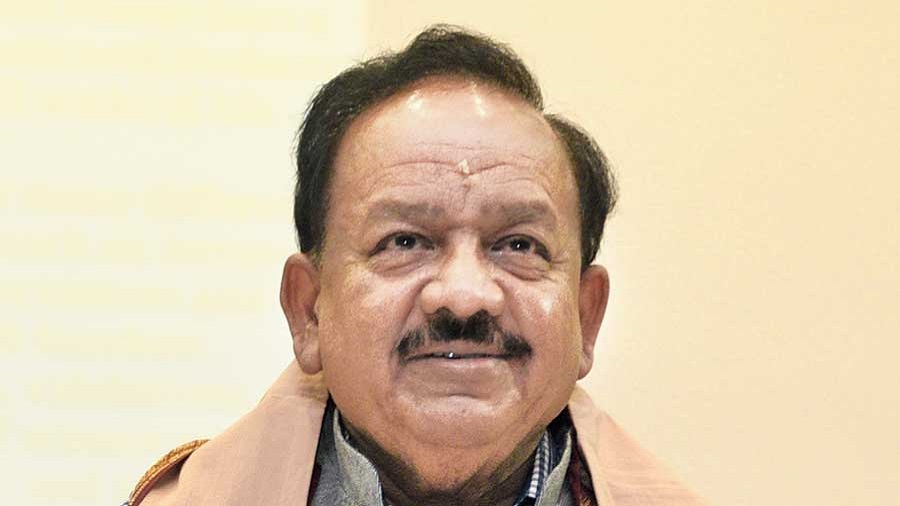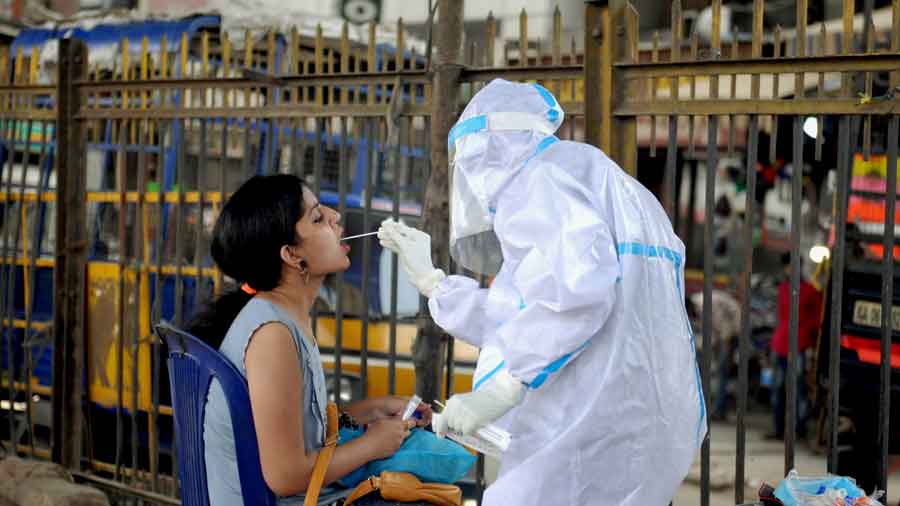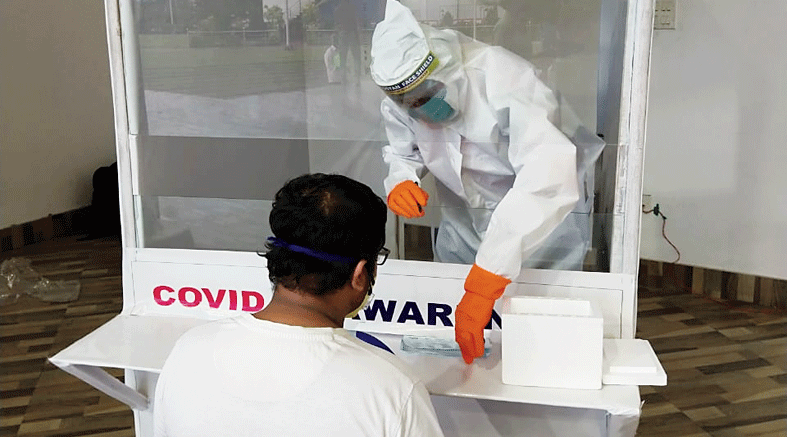India’s health research agency plans to initiate an exercise to determine the true burden of reinfections among coronavirus disease survivors in the country amid genome sequence analyses confirming six anecdotal reports of such an occurrence.
The Indian Council of Medical Research (ICMR) will conduct a study to assess the burden of Covid-19 reinfections, Union health minister Harsh Vardhan said on Sunday, asserting the need to distinguish between residual viral loads and true reinfections.
Medical researchers say although reinfections with the new coronavirus thus far appear to be rare events, they need to be documented and studied as the rate of reinfections may have implications on the effectiveness of vaccines.
The clinical diagnosis of Covid-19 is based on the highly sensitive RT-PCR test that looks for viral genetic material in either throat or nasal swabs and can detect even residual dead virus shed for weeks or even months after a patient has recovered from the infection.
While sporadic reports of reinfection have emerged in various states, Vardhan said, an examination of the ICMR’s database has suggested that many of these cases have been “misclassified”. Patients who have recovered may have been labelled as positive through the detection of shed virus.
“The ICMR is commissioning a study to understand the true burden of reinfected cases,” he said.
A senior ICMR official said the primary objective of the exercise would be to determine the magnitude of the problem. “Reinfection is of course an important health issue for the affected patients, but we need to assess its actual magnitude to know if it is also a public health problem.”
The official said a possible study on reinfections was under discussion. The ICMR maintains a database of the country’s Covid-19 infections which, researchers believe, would make it possible to quickly identify suspected reinfections that could be confirmed through viral genome sequence studies.
Some studies have suggested that the levels of antibodies against SARS-CoV-2, the virus that causes Covid-19, can significantly fall within weeks after the infection. But other studies have shown that SARS-CoV-2 infections might also trigger another arm of the immune system called memory T cell responses that could play a role in preventing recurrent episodes of severe disease.
Two independent studies from Sweden and the US in August this year indicated that although antibody responses against SARS-CoV-2 may weaken over time, immune memory might still be possible through virus-specific memory T cells.
“Given the available data, it appears that reinfections are rare occurrences,” said Anurag Agrawal, director of the Institute of Genomics and Integrative Biology (IGIB), New Delhi, a unit of the Council of Scientific and Industrial Research.
Agrawal and his colleagues had last month collaborating with doctors in Mumbai and confirmed through genome sequencing analyses four reinfections among healthcare workers in Mumbai. Earlier, IGIB scientists had also confirmed two reinfections in Noida, Uttar Pradesh.













